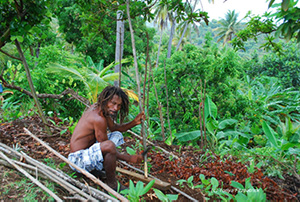APOPO – Saving Lives and Giving Land Back, One Rat at a Time

Photo: Shutterstock
Posted May 8, 2025
Travelers to Southeast Asia are no strangers to Siem Reap. The city’s world-class wonder, Angkor Wat, attracts curious tourists from all over the world. This beautiful destination continues to increase in popularity. And with this boom, opportunities to flourish emerge.
After the inevitable bucket list of Angkor Wat, visitors have many options to dive a little deeper into what Siem Reap offers while supporting local initiatives along the way. From independently run hotels that fund hospitality training for vulnerable young adults, NGO cafes and shops for a good cause, and local circus schools that spark creativity, Siem Reap offers many ways to spend your tourist dollars where the money goes back into the community.
One of the best examples is the APOPO Visitor Center in Siem Reap, where you can meet HeroRATs and learn how this organization is helping countries become landmine-free for the first time in decades. These aren’t just your run-of-the-mill rats. They are African giant pouched rats, a specific species of rat that can be trained to sniff out landmines in different parts of the world.
I visited this organization during my trip to Cambodia this past March and saw firsthand how it is working to make a big difference in the lives of everyday Cambodians.

APOPO Visitor Center Entrance Photo: Jennifer Richardson
APOPO, HeroRATs, and Clearing Landmines in Cambodia
Traditionally, removing landmines is dangerous and expensive work. But the use of these rats is changing the game.
Friendly, intelligent, and armed with an amazing sense of smell, APOPO rats are trained in Tanzania to detect the smell of chemicals like TNT, which are commonly used in explosives.
Conventional de-miners, such as metal detectors, identify all types of metal objects buried under the ground, making removal both timely and difficult. Depending on how much scrap metal is present, clearing a small plot of land can take up to four days.
However, HeroRATs work in an area the size of a tennis court in 30 minutes. And because they weigh less than 3 pounds, they are too light to set off an explosive.
With a limited amount of resources to do the work of clearing out landmines infecting countries like Cambodia for decades, local populations have been unable to work their own land properly. This has robbed them of their autonomy and personal safety.
Increasing Goals to Further Aid the Region
The Cambodian Mine Action Center (CMAC) recently extended its goal for Cambodia to be landmine-free by 2030. This would have a significant impact on local life. Farmers can get back their land that has been lost for decades, one that’s been left untenable and dangerous due to the many explosives lurking underground that were implanted as a result of the Vietnam War, as well as the Khmer Rouge genocide that took place from 1975 to 1979.
From 1979 to 2022, there were over 65,000 mine/ERW (explosive remnants of war) casualties recorded throughout Cambodia, according to this report. Over the years, the number decreased significantly, with 41 casualties reported in 2022.
Working in partnership with CMAC, APOP has continued its operations in Siem Reap for 10 years now. The organization’s work has cleared over 25 million square meters of land across the country. APOPO also actively works in Angola, Senegal, Azerbaijan, and Ukraine.

Static Landmines Display: Photo: Jennifer Richardson
The Process of Training HeroRATS
APOPO uses a simple sensory process and positive reinforcement to train these rats to distinguish and sniff out TNT, through a clicker sound and a food reward. From around 10 weeks old, these rats are trained to associate the sound of a clicker with receiving a tasty treat like a piece of banana or avocado.
Field training begins with two trainers assigned to one rat. They harness the rat and attach a long rope to its harness so it can safely explore a designated area of land. Within the area, the staff implant “dummy mines” with a very small amount of TNT inside them, usually in a tea ball buried a few feet in the ground.
The rats typically show common behaviors like scratching, grooming themselves, sniffing up in the air, and even scratching the ground when they detect the scent. The training area displays signs indicating where the dummy mines have been buried. The trainer watching the rat will know if it has detected one. The trainer then activates a handheld clicker, signaling for the rat to come over and get its well-earned treat!
Once trained, the rats work 30 minutes a day, primarily in the morning when it’s a little cooler.
One beloved rat at APOPO, Magawa, uncovered 71 landmines in his lifetime! He even has his own Wikipedia page.
What it’s Like at the Siem Reap APOPO Visitor Center
Tours at the visitor center last about 40 minutes and are followed by a 15-minute video and a question period. The tour starts with a short introduction from one of the guides about the organization and its work in Cambodia and abroad. Then, you move on to the demo section, where you’ll get a little glimpse at what a typical day in the field looks like for a HeroRAT.
On our tour, we met Jordan, who was part of the demo with two of the local staff. His trainer held him while he met everyone in the group. Guests weren’t allowed to touch him at first, but I was able to snap this candid pic!
After the demonstration, we were given the chance to hold Jordan and take a few photos with him. He was so friendly, curious, and quick to crawl on your shoulders.
Another thing to note, APOPO employs local people and that they don’t necessarily need to be professionally trained vets or doctors to do this work. The only prerequisites are a willingness to learn and help.
And like most people, I don’t enjoy seeing rats on the street and fear that they’ll one day crawl into my apartment. But I loved meeting little Jordan and learning about the vital work that his people do.

Jordan the HeroRAT Photo: Jennifer Richardson
Interested in Visiting Siem Reap?
If you’re planning a visit to Siem Reap, I recommend reserving your spot online. Plan to arrive about 10-15 minutes before your tour. Peruse the gift shop. Or head to the little cafe in the back of the center to grab a Khmer coffee. Be sure to check out the little photo exhibit at the cafe to learn more about the cause.
There’s a lot of work to do in Cambodia. Its recent tragic history left a lot of room to rebuild. My visit humbled me as I observed how things seem to be going in the right direction. Making Cambodia landmine-free succeeds with the help of the dedicated local team and our furry friends like Jordan.
Learn more about APOPO on their website. You can donate or even sponsor one of the rats!
Click Here for Discounted Accommodations in Cambodia
Join the community!

Join our community to receive special updates (we keep your private info locked.)




